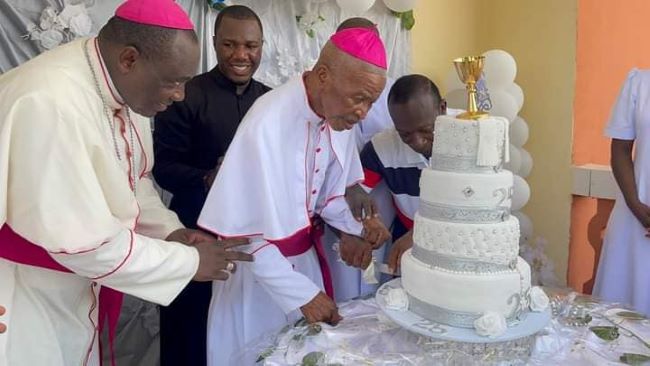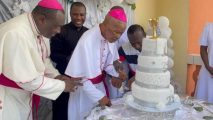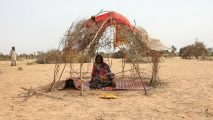Categories
Archives
- April 2024
- March 2024
- February 2024
- January 2024
- December 2023
- November 2023
- October 2023
- September 2023
- August 2023
- July 2023
- June 2023
- May 2023
- April 2023
- March 2023
- February 2023
- January 2023
- December 2022
- November 2022
- October 2022
- September 2022
- August 2022
- July 2022
- June 2022
- May 2022
- April 2022
- March 2022
- February 2022
- January 2022
- December 2021
- November 2021
- October 2021
- September 2021
- August 2021
- July 2021
- June 2021
- May 2021
- April 2021
- March 2021
- February 2021
- January 2021
- December 2020
- November 2020
- October 2020
- September 2020
- August 2020
- July 2020
- June 2020
- May 2020
- April 2020
- March 2020
- February 2020
- January 2020
- December 2019
- November 2019
- October 2019
- September 2019
- August 2019
- July 2019
- June 2019
- May 2019
- April 2019
- March 2019
- February 2019
- January 2019
- December 2018
- November 2018
- October 2018
- September 2018
- August 2018
- July 2018
- June 2018
- May 2018
- April 2018
- March 2018
- February 2018
- January 2018
- December 2017
- November 2017
- October 2017
- September 2017
- August 2017
- July 2017
- June 2017
- May 2017
- April 2017
- March 2017
- February 2017
- January 2017
- December 2016
- November 2016
- October 2016
- September 2016
- August 2016
- July 2016
- June 2016
Featured
 Bishop Francis T. Lysinge @ 25!
Bishop Francis T. Lysinge @ 25!  Understanding the Biya Francophone regime’s support for the Israeli genocide in Gaza
Understanding the Biya Francophone regime’s support for the Israeli genocide in Gaza  Poverty under Biya: Cameroonians embrace Chinese language for brighter futures
Poverty under Biya: Cameroonians embrace Chinese language for brighter futures  Cameroon is broken: Who can fix it?
Cameroon is broken: Who can fix it?  Ethiopia: U.S Senator Cardin Statement on the Killing of Bate Urgessa
Ethiopia: U.S Senator Cardin Statement on the Killing of Bate Urgessa
Most Commented Posts
 4 Anglophone detainees killed in Yaounde
4 Anglophone detainees killed in Yaounde
19 comments Chantal Biya says she will return to Cameroon if General Ivo Yenwo, Martin Belinga Eboutou and Ferdinand Ngoh Ngoh are sacked
Chantal Biya says she will return to Cameroon if General Ivo Yenwo, Martin Belinga Eboutou and Ferdinand Ngoh Ngoh are sacked
13 comments Anglophone Nationalism: Barrister Eyambe says “hidden plans are at work”
Anglophone Nationalism: Barrister Eyambe says “hidden plans are at work”
12 comments The Anglophone Problem – When Facts don’t Lie
The Anglophone Problem – When Facts don’t Lie
12 comments Largest wave of arrest by BIR in Bamenda
Largest wave of arrest by BIR in Bamenda
10 comments
Latest Tweets
Featured
-

Bishop Francis T. Lysinge @ 25!
-

10 Million Cameroonians lived on less than $1.80 per day
-

Football: Xavi to remain as Barcelona coach
-

Biya regime delays bond sale amid regional market strain
-

Historic agreement between Nigeria and Cameroon to tackle wildlife crime
-

Southern Cameroons refugees in Nigeria receive farm seedlings
-

Douala: Investment Forum wraps up with honors for investment champions
© Cameroon Concord News 2024
28, June 2018
What can be done about the Anglophone Problem?-My Statement to US Congress 0
by soter • Editorial, Headline News
It is impossible to speak of any segment of the unrest that has irrupted in the North West and the South West of Cameroon since November 2016, without understanding it as a metaphor of the general Anglophone problem? The answer is simple: No. Why is it so? Answer: Because each aspect of the Anglophone problem brings us to the root of it, which is the wrong done to our people. How can one right that wrong? Answer: By giving our people, and they now call themselves Ambazonians, their statehood back. To get to this conclusion, it is important to not take the question at its face value, for that question can be transformed into various forms: from 1961, the date of the federation of the two formerly German colonies that were then called Grosskamerun, to 1994, during thirty-three years thus, why was there no university of English tradition in Cameroon? Since 1916, why did it take until 2016, one hundred years then, for Cameroon to awaken to the fact that it had lawyers of British tradition in its populace, and needed to respect their judicial system based on common law? Why is there no noteworthy hospital in the part of Cameroon that speaks English? Why is there no science and technology university in the North West or South West? Why does the biggest city in English-speaking Cameroon, Bamenda, have the worst roads in the country?
The list of what reveals the depth of the injustice done to our people since 1961 is endless, but its systematically criminal nature can only be understood if one also remembers that oil was discovered in that part of the country as early as 1970, and its extraction as well as the amount of the revenue it generates have always been a state secret – run straight from Yaoundé, from the presidency of the republic, and managed off-shore by French companies, and on-shore by SONARA, the State oil company, a company always headed by a Francophone, mostly from the tribe of the president, and that means never headed by an Anglophone since its creation, a company whose major shares until 2010 were held by two French companies, Total and Elf.
I was challenged to speak only French around SONARA, writes a former employee, Oliver Zhie, I worked with one sub-company there. All my Francophone colleagues addressed me like this, ‘hey Bamenda!’. There is a lot of hate there.
Now, in Cameroon, ‘Bamenda’, is the slang word by which Francophone people associate Anglophones with servitude, as it means slave, and servant.
Today’s upheavals have a long history, and no aspect of Cameroon’s political life is immune of it. To give you an example, even Cameroon’s awakening to democracy in 1992 – and the opposition party in the country, SDF, Anglophone-based, was born in blood –, has been spearheaded by the Anglophone revolt, the Anglophone dissent, the Anglophone discontent. A quick rundown of the transformation of the Anglophone problem into violent discontent, and this means, of the quite impossible existence of an Anglophone identity inside the Cameroonian public landscape becomes essential when one remembers that the person who effectively transformed what from November 20, 2016 to December 7, 2017 was mostly a corporatist demand of lawyers and teachers into a popular uprising was simply a radio journalist – ‘No Fear’ Mancho Bibixy, and before his arrest, he used to have one of the most popular talk radio shows in Bamenda. His arrest triggered a riot in the city, and he was sentenced a few months ago – in French bien sûr – to fifteen years in jail, on charges of ‘terrorism’, ‘secession’, ‘revolution’, ‘hostility against the fatherland’, ‘propagation of false information’, ‘insurrection and ‘contempt of authorities’, and of paying an impossible fee, by the military tribunal, during a session headed by a Francophone judge, Abega Mbezoa, of the ethnic group of the president.
And yet as outrageous as it is his sentencing is but a small chapter of a general and systematic marginalization of the English-speaking population that effectively started in 1972, and was sanctioned by the State on April 14, 1984 when a decision by the president named the country after what was French Eastern Cameroon until 1961 – la république du Cameroun. The narrative of Anglophone marginalization can be read in the requests with which Mancho Bibixy kick started what he called the coffin revolution, and that has now become a civil war – he was asking for better roads, for better hospitals, for better services, joining teachers who were asking for a school system that respects their English-language education, and lawyers asking for a respect for common law. By doing so, he effectively transformed the journalist that he is, into the mouthpiece of our people’s anger at being denied access to the basic necessities, despite the richness of their land. Or into the fact that activists from the Diaspora are routinely delivered a refusal of entry into Cameroon by the state police, a Notification et motivation de decision de refus d’admission sur le territoire camerounais even when as nationals with a foreign passport, they are in possession of a regular visa delivered at the Cameroonian embassy. The thousands of people from the Anglophone Diaspora living in Nigeria, but also in South Africa, England, and here, in the United States can testify to that systematic exclusion of their kind. Which is to say that it is effectively impossible to disconnect the situation of any Southern Cameroonian, from the impossible condition of being an Anglophone in la république du Cameroun?
Why is it that from the Consortium’s strike to today Cameroon saw a fast erosion of its most talked about peace, and so rapidly sank into a civil war? The answer to this question lies the long history of an impossible cohabitation between two parts of what was a German colony until 1916 and according to the League of Nation and the UN’s trusteeship and mandate had to be marshaled in their own right into independence, and the mismanagement of a federal structure they chose by a francophone State incapable of understanding that the gentlemen’s agreement that brought Eastern and Western Cameroon together in 1961, was neither a certificate of annexation by one part nor one of surrender by the other, and most importantly, had no precedent amongst the fifty-three African nations. Was thus a gem, a historical opportunity? As a matter of comparison: Tanganiya and Zanzibar entered into an agreement to form Tanzania, and the wisdom of their statesmen made them understand that their separate traditions also needed a State structure that respected it – they formed a confederation. Senegal and Gambia entered into a gentlemen’s agreement to form Senegambia, but needed only a couple of years to realize their misjudgment, and did not shed any blood to go apart. Why is it that la république du Cameroun has to kill thousands of Anglophone people, has to sink into a civil war because of a gentlemen’s agreement the kind of which other African states and leaders walked away from without a bloodshed? The answer lies in the riches of Anglophone lands – oil. In the fact that the oil that is tapped on Limbe’s coasts has never been invested in the North West and South West. And oil is without doubt what explains the rigidity of Paul Biya, the Cameroonian president, when he says that the form of the Cameroonian state cannot be discussed, and it is also what explains a statement of the French president Emmanuel Macron to him, on the eve of what would become the bloodiest national unity day in the country, May 20, 2018:
Je souhaite également vous dire la solidarité de la France face aux crimes commis contre, notamment des représentants de l’Etat, dans le contexte de tensions que connaissent les régions Anglophones du Cameroun. Je forme le vœu que ces tensions puissent être résorbées de manière pacifique et concertée, dans le strict respect de l’unité et de l’intégrité de votre pays.
I also wish to express the solidarity of France in the face of the crimes committed against representatives of the State, in the context of the tensions in the Anglophone regions of Cameroon. I wish those tensions to be solved in a pacific manner and through dialogue, and this, in the strict respect of the unity and integrity of your country.
‘Strict respect’? No word regarding the thousand civilians’ dead, those of December 2016, September 2017, October 2017, and of literally every day – the Pa Bertika Edward Penda, 95 who died of lack of medication because he was chased from his village, Depanda Bakundu, burned down by Francophone soldiers. No word regarding the students of the university of Buea raped by mainly Francophone soldiers, some of whom became vipers and like Sidonie were shot and killed in Menka-Pilly while protecting herself in the roof of a home. No word regarding the targeted killing of more and more civilians by Francophone soldiers. No word regarding the thousands of Anglophones hiding in Nigeria because they are unsafe in their homes, dying of malnutrition and hunger in Nigeria, the 75 villages burnt down by Francophone soldiers, the farms looted by Francophone soldiers. No word on the grandmothers and grandfathers – the Mama Monica Appih Sereh, 95, of Kwakwa, or Mama Pauline Ayele Adia, 86, of Mungo Ndoi – who were burned in their homes. No word on the infants killed. No compassion for a Wiyfenga Eileen Fola, 14, whose face was destroyed by a soldier’s bullet. No word on the torture of civilians by Francophone soldiers, on the war crimes that are being committed in Southern Cameroons as I speak. No word on the Anglophone regions that are cut away from the world. No word on the Anglophones, refugees or the like, who are being denied entry into Cameroon even to bury their dead. The victims of the criminal deeds of the francophone State speak louder than any protest of mischaracterization – and the victims are all Anglophones. A demand for the ‘strict respect of the country’s unity and integrity’ is not only a blank check given to a government that is effectively committing a genocide in front of our very eyes, it is also a brutal disregard of Cameroon’s history, and particularly of the history of Western Cameroons, for Southern Cameroon was indeed a State before joining Eastern Cameroons – a State with a functioning government, with its own Constitution, a State that had its own newspapers and only relied on Nigeria for more complex structures like a television network. So much disregard for history, and so much disregard for human life by the head of a State like France can only be interest driven, and the interest here is what manufactures the silence of the media in France over the genocide currently happening in Southern Cameroons. These are important elements to mention and to remember, as la république du Cameroun’s behavior as a colonial conqueror in Southern Cameroons is only possible because Cameroon was always governed as a French-speaking country, as a Francophone country, in fact as a country that has never ceased being a French colony, and as such, the international backing of France was always guaranteed to Paul Biya.
For how long?
The demand for a restoration of statehood in Southern Cameroons, which is tantamount to the demand for a creation of the federal republic of Ambazonia, will always be misunderstood if the social movement that carries it is called ‘separatism’ or ‘secession’, for secession and separatism result from a prior unitary position. Yet the people of Southern Cameroons were never given the opportunity all African states were given by their colonizer – to vote upon their independence, upon their statehood. To understand it better, one has to imagine that instead of choosing between independence and the continuation of colonialism, or of apartheid as all African nations did between 1956 and 1994, Burkina Faso for example, had to choose to remain with Côte d’ivoire or join Mali, because the three countries composed what was then called the Federation of Mali. The country’s fate would have been doomed by the question itself, and yet it is the choice Southern Cameroonians had to face – to join Nigeria, or Eastern Cameroon – the farcicality of which was repeated in 1972 when they had only one option regarding the form of the state – to vote for a unitary system of government. They were never given the choice all African nations had! Not in 1916, not in 1961, and definitely not in 1972! In other words, the League of Nations and the United Nations in particular, both dropped the ball on Southern Cameroons, and allowed our people to be governed as if they had been colonized by a francophone State, and in effect by France. There lies the Anglophone problem, deep seated in it is the very long disregard of a people’s right of self-determination, of sovereignty, the consequence of which can be seen in the absence of basic infrastructures in the two Anglophone regions of the country, in the shutting down of the internet across Anglophone lands, in the jailing of Anglophone journalists, and in the sentencing of an Anglophone activists to fifteen years in jail on charges of ‘hostility against the fatherland’, and in the hundreds and thousands of refugees and internally displaced persons.
In the government of people, there is no lack of wisdom in recognizing that one has committed a mistake. There is no crime in recognizing that one’s parent’s generation has entered into an agreement with which one cannot live, for education is there to have us realize the mistakes past and it gives us the means to rectify them. That the 1884 generation had signed treaties sealing the fate of our land, did not deter the generation of 1960 from asking for independence for the same land. After all, there is no such thing as an eternal agreement between men and women who themselves are not eternal. A government is there to protect the life of the people, to give a shelter to minorities and have everyone have their fair share of the riches of the soil. A government that kills people to protect itself has lost its meaning, and has become a manufacture of injustice. A government that burns villages has become a murdering machine turned against its own population. A government that has its soldiers shoot at hospitals and mosques has lost its right to exist. As for the Anglophone problem, the solution to the deep-seated systematic injustice that created it is multiple, of course, but its multiplicity shall not have us forget the need to also systematically right the wrong, such as to avoid the transformation of what is now a civil war, into a state that is not soon to disappear from the memory of our people, by creating a returning cycle of violence in their midst. To do so there is one door – that door is to come back to the wrong beginning and start anew by restoring the Southern Cameroons statehood. That door is the independence of Southern Cameroons. Of the federal republic of Ambazonia. Needless to say, the fall of Paul Biya is the key to unlock that almighty goal.
By Prof Patrice Nganang